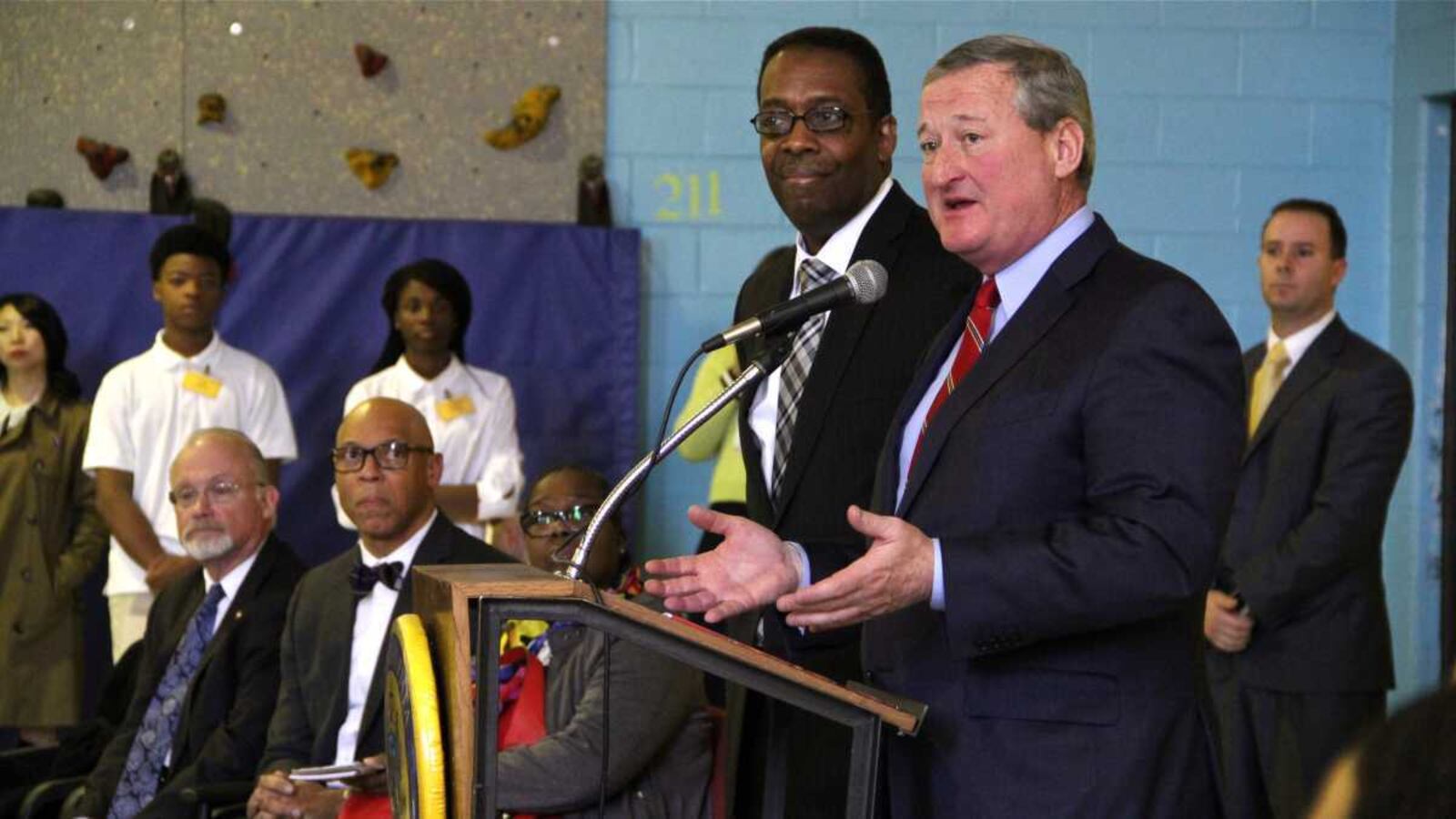This article was originally published in The Notebook. In August 2020, The Notebook became Chalkbeat Philadelphia.
In his first major policy announcement since winning election, Philadelphia Mayor-elect Jim Kenney formalized a campaign promise to create 25 "community schools" over the next four years.
Before a sea of schoolchildren and TV cameras in the gymnasium of North Philadelphia’s Tanner Duckrey Elementary, Kenney told students Monday that the initiative would help give them "the ability to reach your potential in your life."
The event comes after Kenney’s trip to Cincinnati last week, where he and Council President Darrell Clarke took a first-hand look at a district that’s prioritized a community school model that includes health and social services in neighborhood schools.
Kenney and Clarke aim to replicate that model in Philadelphia, creating "school-based family service centers." They envision schools as hubs of health care – with access to primary care physicians, vision and dental services, as well as behavioral health and counseling supports.
These schools would also offer child care and after-school services.
Kenney says his goal is achievable with a relatively small investment – estimating an $8 million annual price tag.
"We deliver services every day from the City of Philadelphia through our operating budget. What we’re talking about is repurposing those services into school-based models so that we can listen to the principals and teachers, so they can let us know what they know about their schools and what services they need," said Kenney.
Clarke, saying community schools would make "a much better city of Philadelphia," explained that there’s already a working model of this plan evident in the city every day.
"You’re maybe scratching your head, ‘What schools are they?’ Well guess what? They’re not schools. They’re prisons," said Clarke. "And damn it, you can’t tell me we can deliver those services in prison and we can’t have these types of services in a school, in a building for these young people. You can’t tell me that."
Kenney and Clarke say they plan to implement the model by leveraging resources from private interests as well as leaning on the city’s universities to provide support.
"You’re going to hear some good things about that very soon," said Clarke, whose office said it could not yet provide details. "Everybody is on board for this."


